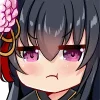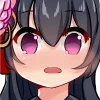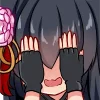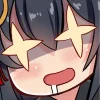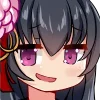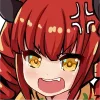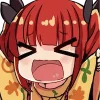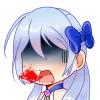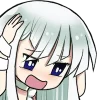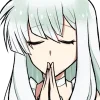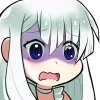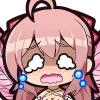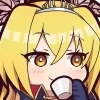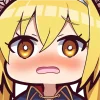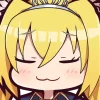TL: Benguin
Editors: Dawnrisen
‘In Year 671 of the Continental Calendar, the brilliant founder and first emperor of a dynasty, an outstanding statesman, military strategist and orator, Li Wufeng was born in the capital of the Tanghe Empire, Zhongzhou, into a declining house of nobility.’ – From excerpts of The History of the Huihuang Empire
“Ah, my hometown. I finally came back.” Looking at the towering gates, Li Wufeng took a deep breath. Although he had no more relatives there, the city was still his home for over ten years. The kind of nostalgia that childhood brings, no matter where he went, he would not be able to easily forget.
As the scenery became less rustic and his hometown became closer, Li Wufeng became flustered, his heart unable to calm itself. “Perhaps I have already grown up.”
His mood now was very different from when when he had just left two years ago to travel around the world.
“I don’t even know the conditions of my parent’s graves. Maybe it’s time that I pay a visit,” the dirt-covered youth murmured to himself, watching the flow of the road’s traffic. Seemingly without a care in the world, he dusted himself off, hopped onto his horse with the reins in one hand, and galloped off into the countryside.
“Father, mother. Your child is back.” Arriving at the cemetery, Li Wufeng stopped and kneeled in front of two ordinary gravestones for what seemed like eternity, unwilling to get up. The cemetery appeared extraordinarily quiet, with only the occasional bird-cry that broke the silence.
After paying his respects to his parent’s graves, the youth looked up at the sky and sighed. “What should I do now? Well, before anything else, let me first go home.”
The Tanghe Empire, located in the central and eastern parts of the continent, boasts a vast amount of territory and houses a large population. Its capital, Zhongzhou, is situated on the Fan River Plains in the centermost part of the Empire, where the soil is fertile, irrigation channels are highly developed, and transportation is swift. With quality goods in abundance and a prolific workforce, Zhongzhou was not only one of the great breadbaskets of the empire, but also its political, commercial, and cultural hub.
The capital had a population of roughly fifty million, and was the largest city in the eastern part of the Laya continent. It was also one of the largest cities throughout the entire landmass of the Laya continent. In recent centuries, they had not experienced a war, which was why they became the East’s most prosperous city and one of the largest cities in the world.
The city was founded during the days of the early Tanghe Empire, in year 286 of the Continental Calendar; Zhongzhou took more than 20 years to lay down its foundations that gradually kept on developing, generation by generation, culminating up to the finished city in the present century.
The city is divided into the inner city and the outer city. The inner city contained the palace of the Imperial Family. It was the working and living space of the emperor, his wives and concubines, and their children. Bordering its perimeters on the outer section were the governmental buildings, followed by houses owned by nobility could be seen slightly behind the governmental buildings, and the outer city was a residential area for commoners and the commerce sector.
The entire city is rectangular in shape, and is protected by a moat along with a wall 15 meters tall and 10 meters thick. The East-West and North-South city squares had nine spacious boulevards, which divided the city into a checkerboard-like area. Between the sections carved out by the avenues are small alleyways and miniature plazas.
Leading out into the plains were four gates. The gates had a width of ten meters, and they usually did not open. The only time the gates would open would be on special circumstances. Both sides also had another gate, which was five meters wide. It would open at six o’clock every morning to 8 at night which allowed ordinary people to go inside and out of the city.
A barrack was stationed on each side outside the four gates, and there were also four barracks stationed in the city. There were divisions of the Imperial Guards regiment stationed inside the barracks, in four groups.
The industrial and commerce sectors were located mainly in the north of the city, along with various miscellaneous shops and warehouses. The headquarters of many large firms and divisions were also located there, along with the Empire’s Finance Department and Tax Revenue Agency.
Every day, all kinds of goods were imported and exported outside the north gates near the banks of the Fan River. Many famous warehouses and distribution centers help with the transfer of goods to and from not only the various parts of the Empire, but the entire continent.
The city’s entertainment and business districts were mainly concentrated in the eastern part of the city, where the feng shui⌈1⌋ for business made those lands invaluable. It contained row upon row of commercial shops, attracting businessmen and tourists from all over the continent. They could be seen everywhere in the eastern sector.
The most famous jewelry stores, banks, restaurants, hotels, brothels, casinos, pawn shops and auction centers were also located in that area. Due to being one of the most complex places to maintain social order, the Imperial Police Headquarters and the Capital Police Department was located here.
The southern part of the city was the cultural and artistic heart of the empire, and contained the Imperial College, the Imperial Academy of Arts, and the Imperial Military Academy – the three highest academical institutions of the Empire.
Students from all over the empire came to the capital, their dreams being attending one of these three colleges to learn a variety of skills and knowledge. Many of the scholars attending these three academies did not originate from the Empire, some even travelling all the way here from the outer fringes of the continent.
There were also other places of interest, such as the Chess Institute, Grand Theater, Institute of Painting and Calligraphy, and the edifices of the imperial government – the Imperial Library, Museum, Center of Arts, Chess Academy, Theatre, Institute, and Hospital.
Since the area was a beautiful environment, the atmosphere of art and culture flourished. Due to this atmosphere, the Imperial Embassy was built here, with nations from across the continent choosing to situate their embassies there.
The placement of private estates also attracted many members of the Imperial family, along with the establishment of well-known private libraries and schools.
The west of the city was the main residential area in the capital, and most of the commoners lived there. Directly located outside the west gates of the Imperial palace were the “Arc of Triumph” and respectively named “Triumph Square”, where the Empire held parades for major celebrations.
The square was surrounded on all four sides by the first regiment of Imperial Guards, and the Capital City Guards headquarters. The Imperial Gendarmerie and was also located around the plaza, and the Headquarters of the Yulin Army, the elite unit of the Imperial Guards was present here as well.
After paying respects to his parent’s graves, the youth got back onto his horse, and rode into the city through the eastern gate. Near the entrance was the famous Victory Avenue,and following the road forward, one would be able to catch sight of the Triumph Square and Arc of Triumph.
After entering the town, the youth dismounted, leisurely walking along the avenue. He looked around at the familiar scene; it still almost seemed the same as when he had left home two years ago, and he recalled the memory vividly.
Everything looked more or less the same, and nothing much had changed. Li Wufeng looked at the scenery of the crowds, business in various shops, assortment of vagrant travelers and hawkers with a vivid eye.
“It seems the lives of ordinary people in the empire is pretty good. However, the same cannot be said about the citizens living in the Western parts of the empire,” Li Wufeng thought.
Leading his horse to the right, he turned and headed into the direction of another street. Proceeding forwards, he then turned left into an alley. His figure was a bit stiff, as the alley was rather narrow. Soon, his house appeared in view.
It was a small alley, with only a few ordinary people living there. It was difficult for people to imagine that in decades, batch after batch of tourists would visit this space, to visit the former residence of the future emperor.
“Auntie Wu!”⌈2⌋
“Who is it?”
“It’s me.”
“Who?” The side door of the house slowly opened, emitting a loud creaking sound. A forty year old, middle-aged woman walked out. The youth immediately recognized her as Auntie Wu, his neighbor from his childhood days.
“It’s me, Auntie Wu. It’s Wufeng.”
“Wufeng, it’s really you! Where did you run off to, the last two years? I did not receive a single word from you! I was scared to death! It really made me worry since your late mother trusted me to take care of you. If anything happened, I wouldn’t have the face to talk to her in the afterlife.”
“Auntie Wu, aren’t I back now? I’m also not young anymore, and I am capable of taking care of myself.”
It was a great difficulty for Li Wufeng to finally convince Aunt Wu, who asked about his health with concern. She bitterly spoke: “Ah, Wufeng. You’re only sixteen years old, and yet you’ve already traveled to so many places. It must have been hard on you, to be alone in these past few years.”
“It wasn’t anything much.” Li Wufeng responded. Despite saying these words, he recalled when he had just turned fourteen years old, who left his home to travel around the world. ‘To be bestowed with great responsibility, one must suffer ordeals and tribulation so as to break one’s will, subdue one’s spirit, exhaust one’s muscles, and starve one’s flesh’. His master’s teachings rang in his ears, and in a flash, two years had gone by.
Those two seemingly short years had opened his eyes, broadened his horizons, and tempered his body, gaining all sorts of knowledge and increasing his proficiency in martial arts. Although he had suffered a lot in the two years, the growth that it brought was highly beneficial, setting him on the path to adulthood.
“Oh, right. I didn’t see Da Niu⌈3⌋ and Er Niu⌈4⌋.”
“Da Niu went to the docks to help his father out. Er Niu married the fourth child of the Zhang family who lives across the street. Her husband works as a pharmacist, and from what I’ve heard, her living standards are pretty decent, and she passes the days comfortably. Speaking of which, I heard that there was a war in the east, and bandits from the north were making trouble. It doesn’t seem that the peace is going to be maintained for much longer. I heard that your uncle is also coming back, so I’m going to prepare some dishes, so we can have a reunion when he comes back.”
Seeing how his neighbors genuinely cared for him, Li Wufeng was moved. Resting in the home that he had been gone from for two years now, he realized that he had to decide which way to go for his future. Thinking of this, Li Wufeng suddenly remembered Uncle Wu talking about the army recruiting going on in the city’s Triumph Square during supper.
Perhaps, this was an opportunity for him to realize his childhood dream.
His master had told him two years ago how today’s Tanghe Empire was surrounded by threats; the domestic rivals of the Tanghe Empire’s principalities were eyeing the surrounding countries. In the East, ambitious military governors threaten the stability of the Imperial Court. In the North Frontier, there were many more problems with the nomadic tribes within the empire. Internally, the empire also had to deal with increasing slave and peasant revolts, forcing many poor people to become bandits to ensure their livelihood. The empire was in decline, and the Tanghe Empire no longer had its peak strength.
Nations in the central part of the continent face constant war from the growing forces of the northern nomadic tribes. To the south of the continent were an alliance of small city-states that have been at peace for the last decade. The situation seems rather calm on the surface, but there were many small-scale conflicts due to economic imbalance and the possibility of war persists on the horizon.
To the east, a perpetual state of war between four major powers continues – three large kingdoms, and a fourth grand alliance. Their conflict is further exacerbated by the nomadic tribes in the north, as they invade their southern neighbors annually.
Thinking up to here, Li Wufeng felt that to succeed in today’s world, having power was necessary. Wishing to change the world without power was simply wishful thinking. The only thing that spoke was one’s strength.
He could not remember which philosopher said this, however.
Li Wufeng thought, “I should join the army as a soldier, and display my talents in the military. From there, I can start up my career.”
Thinking up to here, he slowly drifted off into a peaceful slumber.
Early in the second morning, Li Wufeng woke up slightly before dawn. He did not have such good sleep in a long time.
Walking into the yard, he began to exercise and practice his martial arts, a routine that he would do without fail. There was an old proverb: If you are not steadily advancing against the current, then you are being slowly pushed back.
Li Wufeng began to clean up as soon as he heard Aunt Wu calling him for breakfast. After the meal, he discussed his decision with the Wu family. While Aunt Wu was worried, Uncle Wu was fully supportive of his decision, believing that a young man should be willing to go through hardship, testing his skills in the real world.
- Feng Shui is a Chinese philosophical system of harmonizing everyone with the surrounding environment ↩
- Auntie is the Chinese title given to females of the previous generation regardless of actual familial ties ↩
- Da Niu, Da-Big; Niu-Cow; A nickname given to a male figure that is the eldest of a given generation ↩
- Er Niu, Er-Two/Second; Niu-denoting female of; A nickname given to a girl that is the second eldest of a given generation ↩





